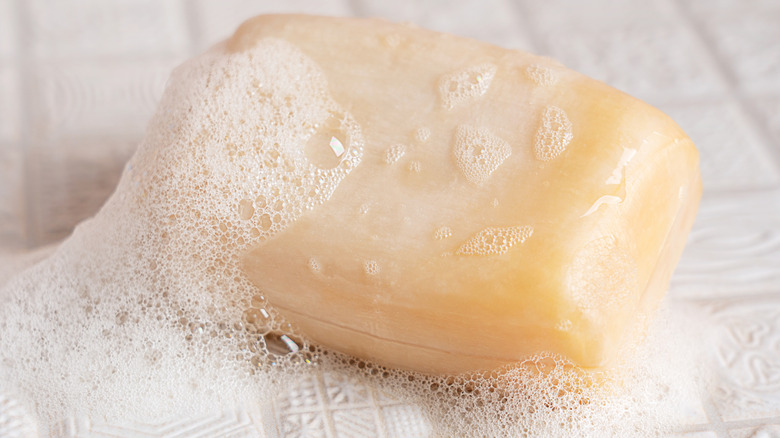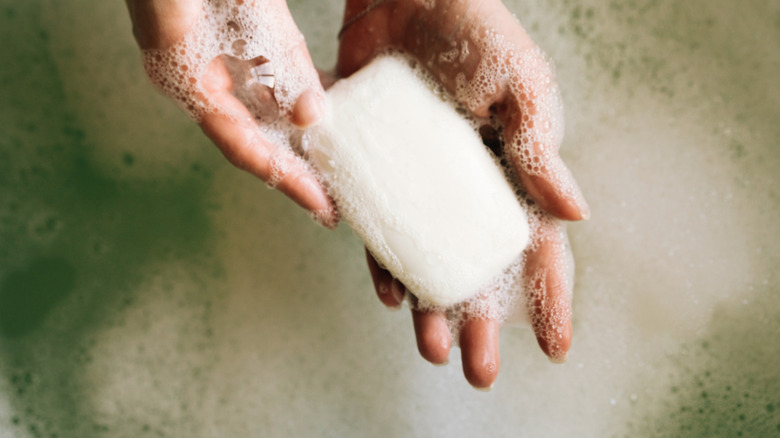Does The 5-Second Rule Apply To Bar Soap In The Shower, Or Is It Too Dirty?
Growing up, you likely heard the "five-second rule," the popular idea anything that touches the floor for less than five seconds is safe to eat. Contrary to popular belief, this rule is actually just a myth. Germs can easily attach to the food in less than five seconds, especially if you're working with a grimy surface. While this myth has largely been debunked, you might have a similar thought if you're ever sudsed off in the shower and dropped your bar of soap on the shower floor.
The answer here is a bit more complex than when it comes to food. If you drop your soap on the shower floor, it is technically dirty, but you can still safely use it. You only need to pick it up and rinse it for 15 seconds or so to wash away any accumulated dirt or germs. If you're committed to maintaining a germ-free home, the floor of your shower is also likely a fairly clean space, so there's not much you have to worry about in this situation.
It might sound confusing, but the answer bubbles down to the formulation of soap. Modern bar soap uses animal or vegetable fat mixed with an alkaline lye, which, in bar soap, is sodium hydroxide. The combination of the fats with the lye results in a process called saponification, which neutralizes the lye and makes it safe for use on skin. Once the mixture becomes soap, you can use it to trap and clear away dirt more effectively than if you were to just use water.
Why you can use bar soap even after it's dropped on the shower floor
Your bar soap is already dirty from all of the germs present around you and on your skin. Therefore, if you drop soap on the shower floor, it may pick up the germs present on the floor or the soap scum in your shower, but it also already contains germs from the process of you washing with it. The purpose of soap is to remove dirt from your skin, and it does this well by attracting then dissolving the dirt, making it easier to wash away. You step in the shower, scrub up, rinse away the grime, and you're clean. It's highly unlikely anything transfers to your skin thanks to its the hybrid formulation of the soap.
Soap consists of molecules with a dual-ended structure. One side of the molecule is hydrophobic, meaning it's repelled by water, and the other side is hydrophilic, meaning it's attracted to water. The unique composition of soap molecules helps isolate then trap the dirt within small structures called micelles. As you rinse away the water, the micelles stop the dirt from attaching to anything else, cleaning your skin. Of course, if you'd rather avoid these questions, you could always just opt for a shower gel and try out some of these other household uses for a bar of soap instead.

